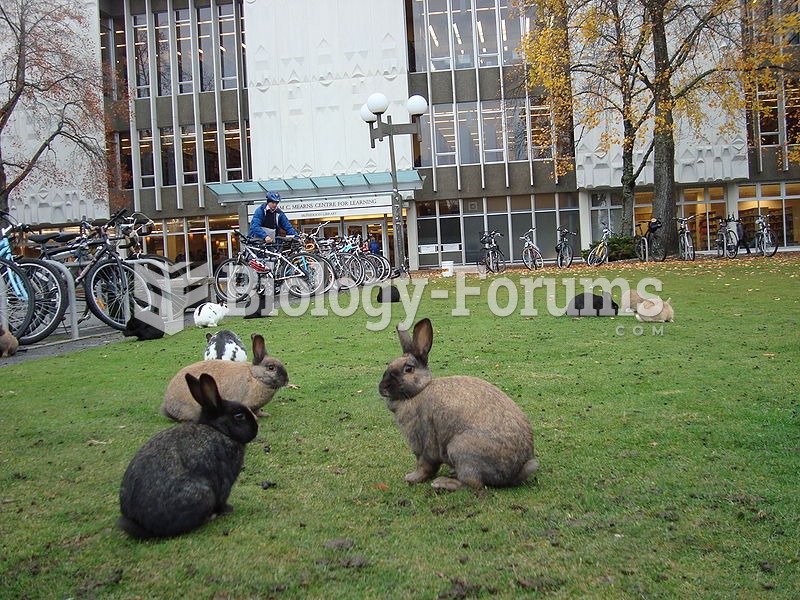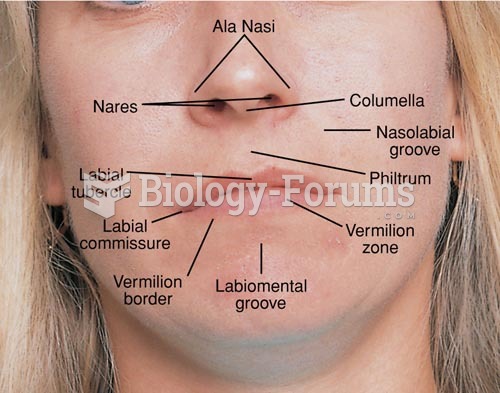|
|
|
Russia has the highest death rate from cardiovascular disease followed by the Ukraine, Romania, Hungary, and Poland.
Sperm cells are so tiny that 400 to 500 million (400,000,000–500,000,000) of them fit onto 1 tsp.
Oliver Wendell Holmes is credited with introducing the words "anesthesia" and "anesthetic" into the English language in 1846.
The types of cancer that alpha interferons are used to treat include hairy cell leukemia, melanoma, follicular non-Hodgkin's lymphoma, and AIDS-related Kaposi's sarcoma.
As many as 28% of hospitalized patients requiring mechanical ventilators to help them breathe (for more than 48 hours) will develop ventilator-associated pneumonia. Current therapy involves intravenous antibiotics, but new antibiotics that can be inhaled (and more directly treat the infection) are being developed.
 When introduced into a new area, rabbits can overpopulate rapidly, becoming a nuisance, as on this u
When introduced into a new area, rabbits can overpopulate rapidly, becoming a nuisance, as on this u
 Cerebral angiography. The four angiograms each reveal the distribution of blood vessels supplying th
Cerebral angiography. The four angiograms each reveal the distribution of blood vessels supplying th
 Laparoscopy. A lighted endoscope specialized for insertion into the abdomen, called a laparoscope, i
Laparoscopy. A lighted endoscope specialized for insertion into the abdomen, called a laparoscope, i




